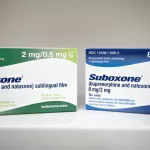Boric acid is sold OTC and is generally regarded as safe for vaginal application. While additional research is necessary, it may serve as a helpful adjunctive therapy for bacterial vaginosis (BV).
Bacterial vaginosis is a frequent infection often prompted by shifts in vaginal pH.
When vaginal pH becomes imbalanced, it can alter the proportions of the various bacteria that naturally inhabit the vagina. This imbalance can permit overgrowth of Gardnerella vaginalis — a commonly present bacterium in the vaginal microbiome.
What factors can change your vaginal pH? Common contributors include:
- douching, using vaginal deodorants, or scented tampons
- hormonal fluctuations such as menstruation, pregnancy, and menopause
- having sex with a new partner

Antibiotics usually treat BV effectively, but the infection can recur even after multiple courses of therapy.
Some natural approaches, when used alongside antibiotics, may aid in curing BV and lowering recurrence risk. One of these options is boric acid, a compound derived from the element boron, which is commonly found in minerals.
Below is an overview of boric acid’s potential effectiveness, directions for use, and other at-home measures that may help ease BV symptoms.
What is boric acid?
Boric acid, a common boron compound, is a naturally occurring substance that has been utilized for decades as a home remedy to address vaginal infections.
In its native form, boric acid appears as a white or colorless powder or crystalline substance and exhibits antifungal and antiviral actions.
It is available over the counter and has a range of uses, from pest control to neutralizing odors in refrigerators. For vaginal treatment, it is typically packaged inside gelatin capsules for insertion.
Because of its properties, boric acid is included in various products such as:
- astringents
- antiseptics
- medicated powders
- skin lotions
- eye wash preparations
Does boric acid work for treating bacterial vaginosis?
Standard antibiotic therapy for BV is reported to achieve about a 70 to 80 percent cure rate at one month after treatment.
In a 2009 study, researchers administered 600 mg of intravaginal boric acid alongside antibiotics. Participants who used boric acid with conventional therapy experienced an 88 percent cure rate at seven weeks and a 92 percent cure rate at 12 weeks.
The investigators hypothesized that boric acid may help by removing bacterial biofilm or mucus from the vaginal environment, potentially allowing antibiotics to eliminate pathogens more effectively.
A 2011 review examined 14 studies on boric acid for vulvovaginal candidiasis, finding cure rates between 40 and 100 percent.
However, that review did not specifically address the bacterial agents responsible for BV.
Although these findings are promising, further well-designed studies are needed to confirm boric acid’s role as an effective adjunct for BV.
Is it safe to use?
Boric acid is considered safe for vaginal use, but it is poisonous if ingested. Never swallow boric acid and keep it away from children and pets.
If you suspect someone has swallowed boric acid, seek medical help immediately.
Boric acid should not be used during pregnancy.
Consult your healthcare provider before using boric acid to ensure it is appropriate for you and to obtain guidance on dosing.
How to use boric acid suppositories
Boric acid is inexpensive and available without a prescription. For vaginal treatment, it is usually supplied in gelatin capsules for insertion.
To insert a capsule:
- Wash and dry your hands.
- Lie on your back with knees bent, or stand with knees slightly bent.
- Gently insert one capsule as far into the vagina as is comfortable, using your fingers or an applicator if provided.
- Discard the applicator after use; do not reuse it.
- Consider wearing a panty liner to catch any discharge.
- Wash your hands thoroughly afterward.
You can also prepare homemade suppositories by filling size 0 gelatin capsules with approximately 600 mg of boric acid.
The commonly recommended dose is 600 mg once daily for 7 to 14 days.
Other home remedies
Note that douching will not help BV and may actually worsen it or increase the likelihood of recurrence.
The following home remedies have some evidence suggesting they may help relieve BV symptoms or reduce recurrence, but the data are not definitive. Always check with your doctor before trying them.
Hydrogen peroxide
In a study, researchers found that daily use of hydrogen peroxide for one week alleviated BV symptoms as effectively as standard treatments.
Probiotics
Some research indicates that probiotics might help prevent BV from returning. Probiotics are available as oral pills or liquids and are naturally present in some yogurts.
For more on at-home approaches to vaginal health you may also find topics like womens health itching vagina home remedies and guidance on vaginal steaming relevant — though always discuss such measures with your clinician before trying them.
Tea tree oil
Tea tree oil is an essential oil with antibacterial and antifungal activity. One small study showed it killed BV-associated bacteria in vitro.
Because tea tree oil is highly concentrated, it should be diluted before topical use. It is also sold OTC as a suppository product.
When to see a doctor
Contact your healthcare provider if you suspect you have BV.
Watch for common symptoms such as:
- a strong, “fishy” vaginal odor
- vaginal itching or burning
- discharge that is thin and gray, white, or green
- a burning sensation during urination
The bottom line
If antibiotics alone aren’t resolving your BV, boric acid may be worth considering as an adjunct. Although research is limited, it appears to improve cure rates for some vaginal infections.
Discuss symptoms and treatment options with your doctor if you’re considering boric acid for BV.
























Leave a Reply
You must be logged in to post a comment.